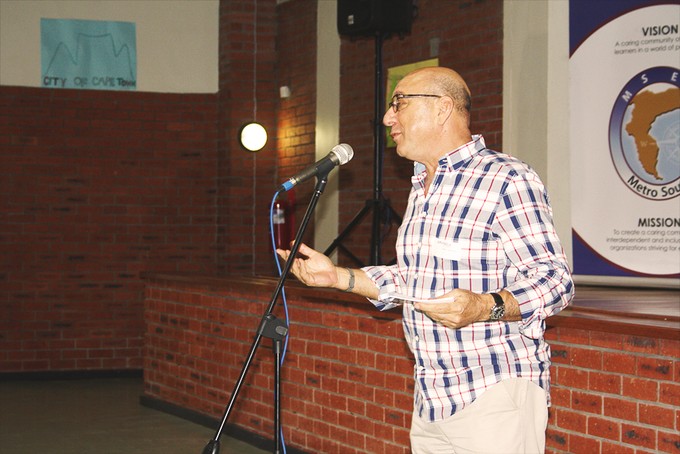How a report card can help education in Philippi
We can “create the conditions to make formal education work” - Trevor Manuel
As Basic Education Minister Angie Motshekga noted while releasing the 2015 matric results, we have a crisis of retention: Half of learners who enter the school system drop out before matric year.
But improving school infrastructure and teaching quality is not enough; school students must be ready to learn when they arrive at school.
The obvious question is how to create an effective methodology to get students ready when we generally know so little about the challenges of each community. Surely we can’t create a new policy for every single community. And government policies tend to be one-size-fits-all.
Diagnosing the specific challenges in a given school and community is critical to providing relevant support to the learner. Amandla Development and the Philippi Collective Network recently launched the Community Report Card, a tool for monitoring student welfare from cradle to career. The Report Card lays out success goals (outcomes) and indicators that the child is on the right track.
Download the full report card.
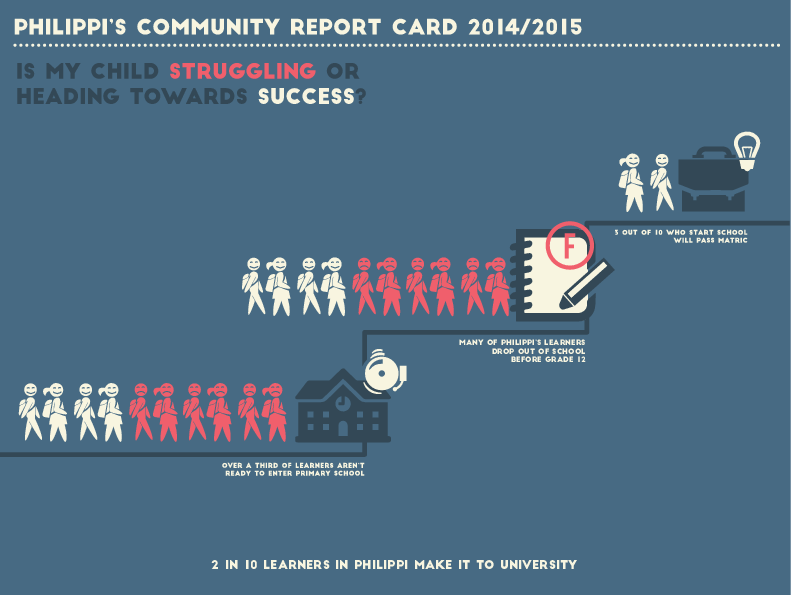
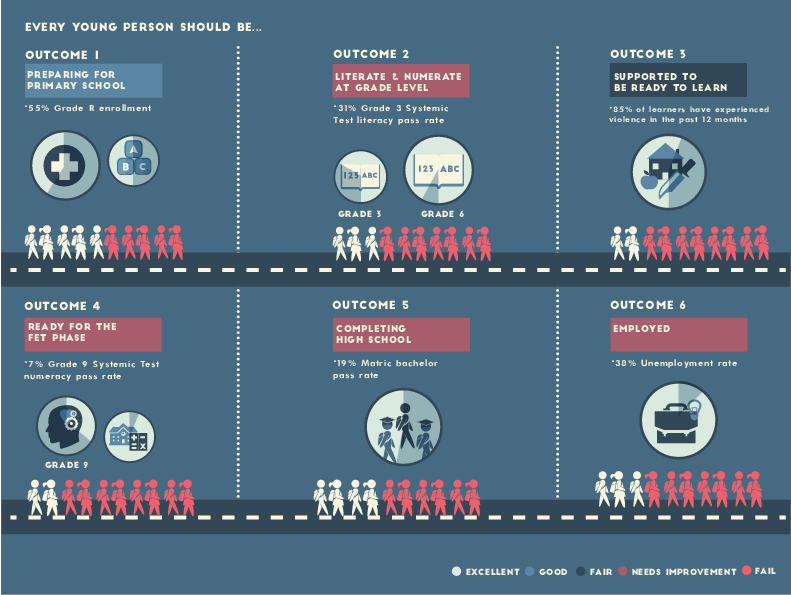
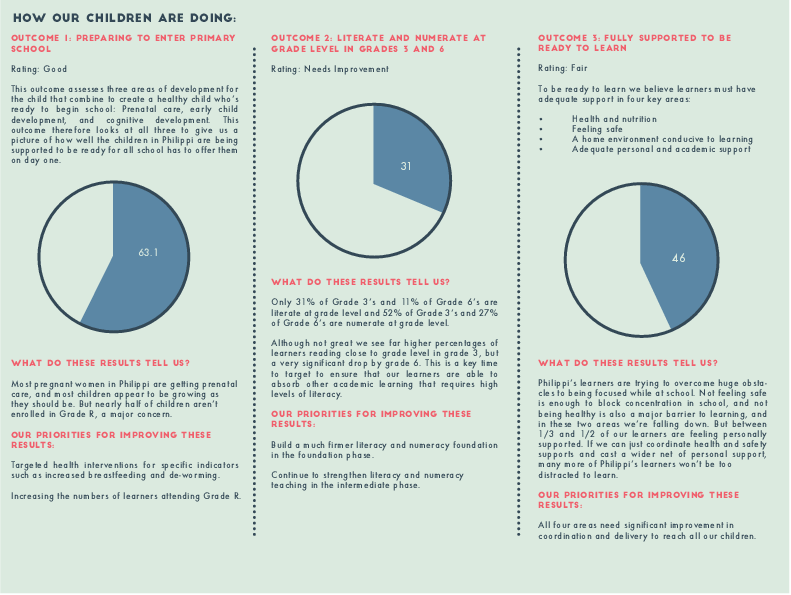
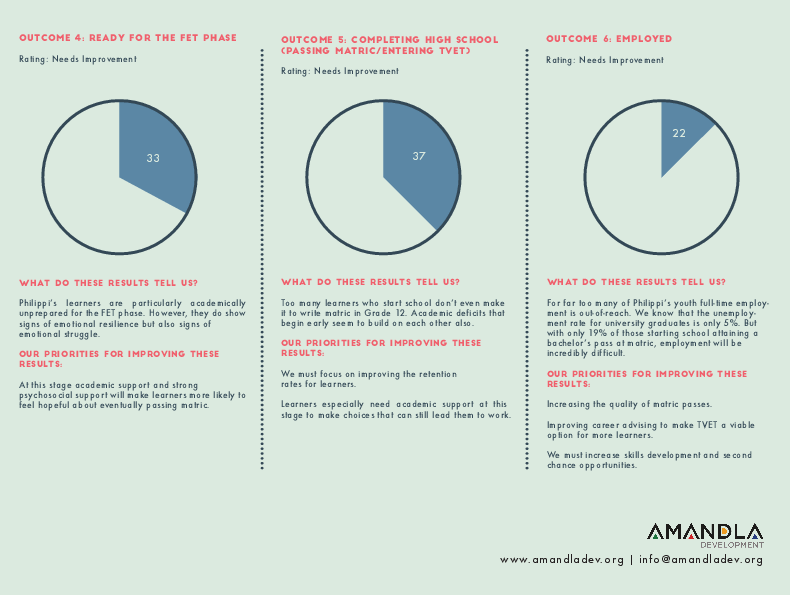
The Collective was excited to have Trevor Manuel give the keynote address at its indaba launch of the report card. He encouraged the crowd to view education as a “journey and not an event” and that through the Report Card we can “create the conditions to make formal education work.”
Guided by Amandla Development, the Philippi Collective Network is a collaboration of government, schools, NGOs, and other active citizens, dedicated to ensuring all of Philippi’s learners are fully supported to stay in school and succeed in school. And with the report card they now have the knowledge base to do so.
The report card tells us that although many children get off to a healthy start on their journey, nearly half of Philippi’s children aren’t getting academic preparation for primary school via Grade R. We also see literacy and numeracy results nosedive after Grade Three and a building sense of anxiety and hopelessness amongst students going into high school. Too many of our boys are joining gangs and too many of our girls are falling pregnant.
While knowing all of this is valuable in and of itself, the true value of the Community Report Card is that it gives us vital local knowledge that can shape government policy and strategies of schools and organisations to meet students’ needs.
The Collective spent the indaba crafting its strategy for making Philippi a place where learning thrives, despite the obstacles of poverty. Engaging parents, decreasing violence, and making reading part of everyday life are high on the list of priorities for the coming year. It’s clear that the talents and resources of many individuals will be needed to drive change.
As Minister Manuel also reminded us, we can’t keep doing the same things over and over and expecting different results. The Philippi Collective has taken that to heart and is breaking new ground to secure the future of its children.
Views expressed are not necessarily GroundUp’s.
Support independent journalism
Donate using Payfast

Don't miss out on the latest news
We respect your privacy, and promise we won't spam you.
Next: Unequal education: the plight of Westlake students
Previous: Footbridge for river where Angel drowned
© 2016 GroundUp. 
This article is licensed under a Creative Commons Attribution-NoDerivatives 4.0 International License.

